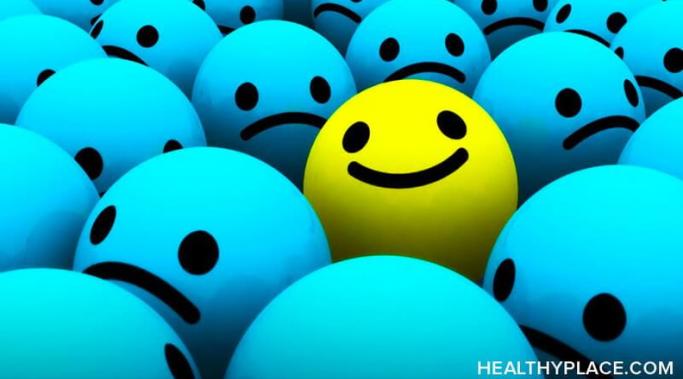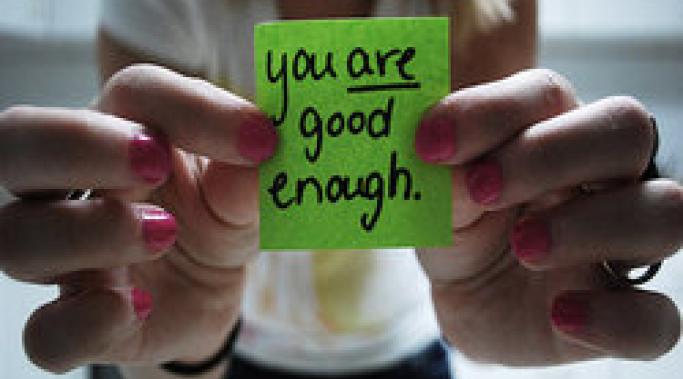When mental health issues strike, it's common for some people to notice changes in themselves from who they once were, but you can improve your mental health by contributing. You may have been a social butterfly before, the life of the party, or you may have always gone out of your way to help others. One thing is for sure -- when you fall into a deep depression or find yourself anxious all the time, not only can you change as a person, but it's almost impossible to take the focus off yourself and how bad you feel. What can you do to take some of your control back? What I want to share in this video could potentially be the starting point for pulling yourself out of your anxiety and/or depression. Here I talk about contributing to help improve your mental health.
Mental Health for the Digital Generation
There is a struggle for many with mental health in their 20s. Some say your 20s are the best years of your life. Being young definitely has its advantages, and a lot of people wish they could stop time and stay young forever. It is great not having to worry about wrinkles, and knowing that your physical body is in its prime condition. But why do so many people in their 20s struggle with mental health issues? When young people are supposed to be fit, driven, and with their whole lives ahead of them, why are so many unhappy and suffering with issues such as depression, anxiety and panic?
Knowing how to help a loved one through depression can be confusing. It’s common to hear people use the word "depression" and casually throw it around in everyday conversation. However, the serious illness that is depression, unfortunately, can strike at any time, and affect a loved one at a moment’s notice. It can be very hard for family and friends to see someone they love suffer. How do you help a loved one going through depression when you don’t understand it, and what approach should you take?
At one time or another, most of us have been through hard times that wear us down immensely, but how do you know if you have depression? People use the word depression often. They believe depressed people are sad for a particular reason. However this is not the case. So, if that isn't depression, then how do you know if you have depression? What is depression?
There are many reasons why people suffer from low self-esteem. From the past programming as children, to the unrealistic feeling that we need to have it all. Why do we put so much pressure on ourselves to be a certain way or achieve certain things? Sometimes it's easy to fall into negative patterns of thinking. Like feeling discouraged about where we are in life, and wishing we were more than we are. Comparing yourself to others will only bring more frustration as we all have our unique talents and skills to focus on.
I remember being a teenager -- calling that phase of life a challenging time is an understatement! Many teenagers need self-esteem help because not only are you going through physical changes that affect your mood and hormones, but you are also trying to find who you really are.
How do you do this when during the teenage years you're so influenced by others? How do you do this when it’s painful to go against your peers, and all you want to do is fit in? If you are unique and don’t conform to the norm, you start to feel like you’re not good enough (The Truth About Self-Esteem). How does one get through this transition period into adulthood? Here's some help for teenage self-esteem.
I used to wonder, are exercise and mental health related? Can it improve your overall mental health and be as helpful as antidepressants? In my recent experience, I’ve found the answer is yes. I have been through anxiety, depression and depersonalization (feeling a sense of watching yourself and feeling disconnected to others and oneself) and exercise helped to lift my mood during the dark days. The problem is, like many others might find, it’s a constant struggle to stay motivated and develop a love for exercise for your mental health.
Once you’ve experienced the horror of anxiety and depression you are thankful every day that you have your life back, and you start to make plans for the future but what you need to know is that mental health wellness is a lifetime commitment. The gratitude one feels after a breakdown is like no other feeling in this world. Naturally, as we regain our health, we crave change and work on improving our own lives. However, we need to make sure we don’t become complacent and fall back into similar traps of negative thought patterns that are dangerous for our mental health. We need to make sure we make a lifetime commitment to mental health wellness.
Hello, my name is Kristen Virag, and I am very pleased to be the co-author of the Mental Health for the Digital Generation blog. I have had two major episodes of anxiety, depression and depersonalization (where your thoughts and feelings feel like you're not your own and you lose your own identity) which left me in a very crippled state for several months. I now consider myself recovered, but I pay special attention to myself and care for myself daily to make sure I never relapse.
I've been attending Alcoholics Anonymous (AA) for about five months and the meetings have been a blessing in my recovery. For us young people, staying sober can be very difficult because drinking seems to be the "cool" thing to do. We can often feel like our lives are "over" in early recovery, and that we are going to be missing out or boring. When I thought about attending AA, I asked myself, "how can I possibly relate to someone who is over the age of 40?" However, in the past five months my attitude has drastically changed.








